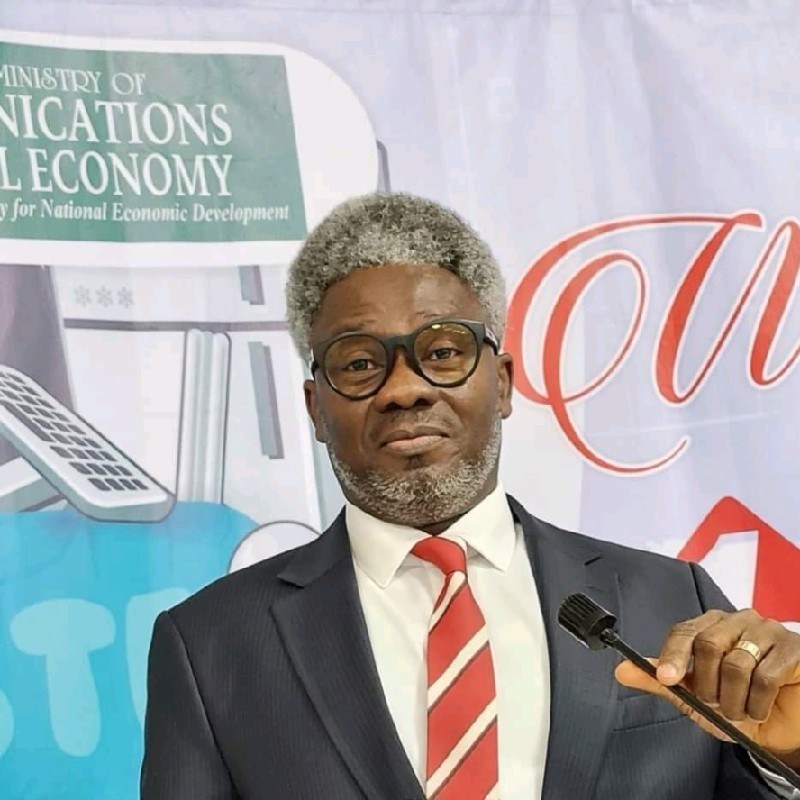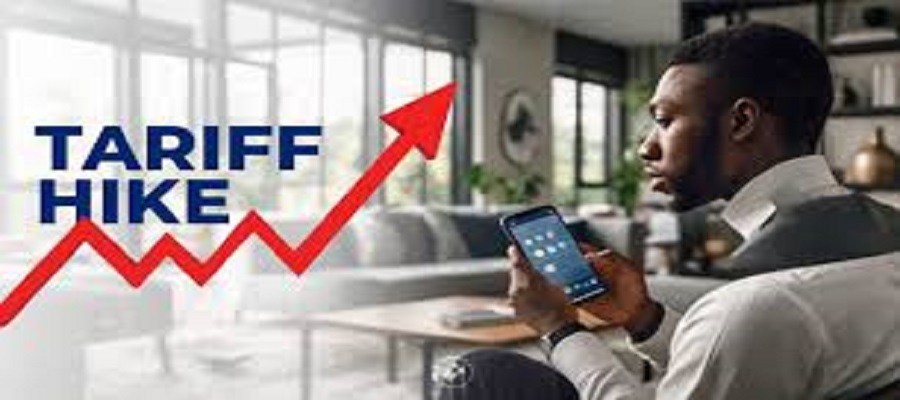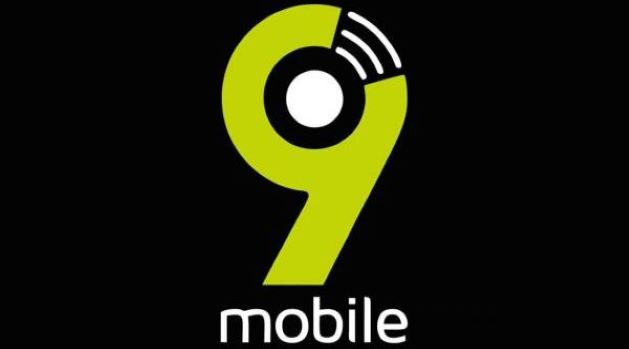Telecom
Nigeria’s Omoniyi Ibietan, elected Secretary-General of APRA

Omoniyi Ibietan, Head Media Relations at the Nigerian Communications Commission, fellow of the Nigerian Institute of Public Relations (NIPR) and African Public Relations Association (APRA), has just been elected the Secretary-General of APRA at the ongoing 35th Annual Conference and Annual General Meeting taking place in Abidjan, Côte d’Ivoire.

Ibietan has promised to work with other members of the Executive Council to continue the trajectory of reforms in APRA, expand the democratic space by encouraging greater participation of national public relations institutions on the Continent and work more closely with the African Union Commission and Council of Ministers to put public relations at the heart of policy, programmes, and project implementation. Ibietan was elected into a three-man Executive Council. The other two members are Arik Karani (Kenya), President, and Dr. Michele Mekeme (Cameroon), Vice President.
OMONIYI P. IBIETAN is a journalist, writer, and author. As Head of Media Relations Management at the Nigerian Communications Commission (NCC), where he oversees aspects of the public communication strategy of the national regulatory authority for telecommunication in Nigeria. Earlier in Nigeria’s Fourth Republic, he was Special Media Advisor to the Federal Minister of Information and Communication.
He has over 20 years of experience in media and communication scholarship and practice, spanning journalism, academia, policy discourse, communication strategy, regulation, and stakeholder relations.
He earned BA and MA in Communication Arts and Communication & Language Arts from the Universities of Uyo and Ibadan in Nigeria, respectively, graduating atop his classes. Earlier, he obtained a diploma in journalism with distinction from the Moscow-Based International Institute of Journalism.
He holds a Ph.D. in Communication from the North-West University in South Africa, with specialisation in political communication. He is a IP3 certified regulation specialist and holds a mini MBA in telecommunications from NEOTELIS in Paris.
He is also a member of the African Council for Communication Education (ACCE), an Associate Registered Practitioner of Advertising (arpa) and member of the International Institute of Communications (IIC), the world’s only policy debating platform for the converged communications industry.
As a scholar, he focuses on patterns of political communication through new media; media and culture studies; and theoretical & normative foundations of communication in relation to democracy and freedom. He is on the faculty of the Nigerian campus of Italy-based Rome Business School (RBS), where he teaches doctoral students PR & Advertising and Media Management & Communication Strategy. He also facilitates learning to students in the Master of Corporate Communication programme at RBS.
His first book, SOCIAL MEDIA, SOCIAL DEMOGRAPHY, AND VOTING BEHAVIOUR IN NIGERIA, was published by Premium Times Books in Washington in May 2023.
He has travelled extensively in Africa, North America, Europe, and Asia.
He is married, has children, plays tennis and scrabble, loves reading and writing, and loves meeting people, especially people from other cultures.
At the ongoing conference, Ibietan presented the first paper at the commencement of business sessions. The title of his paper is DIGITAL INCLUSION AS ARBITER OF ACCESSIBLE PUBLIC RELATIONS: A CASE OF NIGERIAN COMMUNICATIONS COMMISSION.
Using Castells’ Theory of the Network Society and the Knowledge Gap Theory and based on the actions of the Nigerian government through the activities of the Nigerian Communications Commission (NCC), Ibietan advanced a thesis that digital inclusion is the arbiter of digital public relations.
Through implementation of laws, policies, guidelines, developmental regulation, collaborative partnerships, social investments, operational efficiency and ancillary actions that are consequential and quantifiable, and using copious pictorial evidence, Omoniyi discoursed a perspective that NCC’s digital inclusion programmes, projects and activities are foundational to digital economy because investment in and coordination of expansion of digital infrastructure, demonstrating their affordances and enhancing people’s access to such resources, constitute the building blocks and raison d’être of digital economy and inherently digital public relations.
APRA, the successor to the Federation of African Public Relations Association (FAPRA), instituted in Nairobi in 1975, exists to foster unity of Africans and their global allies through interactions and exchange of meaning. Pivoted on standardisation of public relations practice and scholarship on the Continent to enhance its relevance to the African reality, APRA member states and individuals meet annually at a location in any of its regional centres (East, North, South, West, Central, Indian Ocean Islands, and Francophone) to have a conversation with a thematic focus on any of its key intervention areas (Health & Education, Economic Integration, Good Governance, Tourusm & Leisure, and Infrastructure Development). This year’s theme is ‘ONE AFRICA, ONE VOICE: BRIDGING AFRICA’S COMMUNICATION DIVIDE’.
APRA Côte d’Ivoire 2024 is endorsed by the Government of Côte d’Ivoire, the Holding Opinion & Public (THOP), and major global PR associations, namely the International Public Relations Association (IPRA), The International Communications
Consultancy Organisation (ICCO), the Global Alliance for Public Relations and Communication Management (GA), the African Union Commission (AUC), and PR national associations across the continent.
Additionally, the conference featured the eighth edition of the Innovation Summit (IN2SUMMIT) and includes the seventh edition of the SABRE Awards Africa, holding tonight.
The APRA secretariat is in Nigeria, and the body maintains an observer status with the African Union.
Telecom
FG Says 50 Percent Telecom Tariff Hike is Only a Start

Wale Edun, minister of Finance, has stated that the recently approved 50 percent tariff increase in the cost of telecommunications services is only a starting point. He noted that it is necessary to balance rising operational costs with the provision of quality services and the broader economic considerations for both consumers and the telecoms industry.

Wale Edun
He said this during an interview on Arise News at the 2025 World Economic Forum (WEF) in Davos, Switzerland.
Edun explained that the tariff review, the first in 12 years, was necessitated by inflation and a significant rise in telecom operators’ operational costs.
While operators had requested a 100 percent increase to meet cost demands, the Federal Government approved a 50 percent increment as a compromise.
“There is a need to reflect the fact that over a 12-year period, there has been a rise in costs, there has been inflation, and that needs to be reflected,” Edun said.
“It is all about compromise and the timing and sequencing of these changes. As critical players in Nigeria’s economy, we want the telcos to operate efficiently, providing quality services, and contributing to GDP growth.”
Edun highlighted that the government’s primary objective is to ensure that telecom operators deliver efficient services, such as seamless call terminations and improved quality, while fostering growth in the sector.
“We don’t want dropped calls. We want good quality services from them. And at the same time, we want them growing, employing people, and adding to the country’s GDP,” he stated.
While acknowledging the backlash to the tariff increase due to its potential impact on the cost of living, Edun maintained that the government is committed to ongoing reviews and consultations to address these concerns and ensure that the adjustments remain beneficial for both consumers and operators.
“The cost-of-living increase that has occurred has to be reflected,” he explained.
“But I believe that this 50 percent increase is a start, and it is a situation that will be looked at on a forward-looking basis as we go forward. There will continue to be review, consultation, and discussion in this area.”
The minister also noted that telecom pricing is regulated to prevent arbitrary increases and the importance of dialogue and compromise in setting tariffs.
Telecom
NANS Threatens Nationwide Protests over 50 Percent Telecom Tariff Hike

National Association of Nigerian Students (NANS) has condemned the recently approved 50 per cent increment in telecommunications tariffs by the Nigeria Communications Commission (NCC) and the Ministry of Communications, Digital Economy, describing it as not only abnormal but inconsiderate and unjustifiable.

NANS in a statement signed by Comrade Oladimeji Uthman, clerk of the Senate, National Headquarters, warned the NCC and the Ministry of Communications, Digital Economy to review the increment within 72 hours or risk a nationwide protest by over 40 million Nigerian students already going through untold hardships occasioned by rising inflation.
Comrade Uthman stated further, “This decision is not only abnormal but also highly inconsiderate and unjustifiable, especially in the current socio-economic climate that has placed an unbearable burden on Nigerian students and citizens.
“In an era where digital connectivity has become indispensable to education and daily life, such a steep increment will have far-reaching consequences for students. The proposed hike will escalate the cost of internet data and other telecommunication services, which are critical tools for learning, research, and academic activities.
“The harsh realities of Nigeria’s economic situation—marked by rising tuition fees, expensive transportation, increased accommodation costs, and general inflation—already weigh heavily on the shoulders of students and their families.”
NANS emphasised that adding a 50% tariff increment to these challenges amounts to an outright disregard for the welfare and progress of Nigerian students, saying that the association had over the year been at the forefront for affordable and inclusive access to digital infrastructure as a way to bridge the educational gap in Nigeria.
It stated that the NCC’s decision, if implemented, will further exacerbate the digital divide, excluding millions of students from accessing quality education and information as it raised concerns that the policy undermines the government’s commitment to youth development, innovation, and the digital economy agenda.
Considering the challenges faced by the telecommunications industry, including inflation and operational costs, NANS cautioned that the burden of these challenges should not be transferred to the masses, especially Nigerian students and urged the NCC and the Ministry of Digital Economy to explore alternative measures to address these issues without jeopardizing the affordability and accessibility of telecommunications services.
NANS explained further ,”As stakeholders in the future of this nation, we call for immediate dialogue with the NCC, the Ministry of Digital Economy, and relevant telecommunications stakeholders to discuss a fair and balanced approach that prioritizes the welfare of Nigerian students and citizens. We believe that together, we can find a sustainable solution that balances industry growth with public interest.
The statement added, “As the umbrella body of Nigerian students, NANS cannot sit idly by while policies detrimental to the collective interest of over 40 million Nigerian students are implemented without due consideration.
“We hereby issue a 72-hour ultimatum to the NCC to review this tariff increment and take decisive steps toward its reversal. Failure to heed this call will leave NANS with no other choice but to embark on a nationwide mass protest to demand justice and fairness for Nigerian students.
“We are prepared to mobilize all student leaders, unions, and organizations across the 36 states and the Federal Capital Territory to peacefully demonstrate against this decision.”
It warned that the planned protests will not only demand the reversal of the tariff increment but also advocate for broader consultations with stakeholders before any future policies affecting the public are implemented, saying it remained committed to peaceful advocacy and dialogue as a means of resolving issues but with limited patience.
The review, which comes amid rising inflation and economic pressures, has elicited mixed reactions. While consumers have expressed affordability concerns, industry players see it as a long-overdue adjustment to sustain operations and improve service delivery.
Telecom
9mobile Pledges to Boost Service Quality, Customer Experience

Telecommunications provider, 9mobile, has applauded the Federal Government and the Nigerian Communications Commission (NCC) for approving a 50% tariff adjustment—a vital initiative aimed at addressing persistent challenges in Nigeria’s telecom sector.

This decision, reached after extensive deliberations, marks a significant step towards ensuring the long-term sustainability of the industry by enabling the necessary investments to enhance service quality for consumers nationwide.
The telecom industry had previously advocated for a substantial tariff review to combat surging operational costs, driven by inflation, skyrocketing energy prices, and a currency devaluation exceeding 300%.
While the industry’s initial request called for a larger increase up to 100%, the NCC’s approval of a 50% adjustment represents a balanced approach to safeguarding affordability for consumers while addressing industry sustainability concerns.
Obafemi Banigbe, 9mobile’s CEO, emphasized that the tariff adjustment will enable telecom operators to reinvest in critical infrastructure upgrades and capacity expansion—both of which have been delayed due to financial constraints. “This tariff adjustment is timely and essential,” Banigbe stated.
“It allows operators to fulfill obligations and capital commitments necessary for future growth. Without this, the industry risked a decline in service quality due to insufficient funding. With this change, we are better positioned to drive innovation, growth, and enhanced connectivity for Nigerians.”
Banigbe further noted that the increase provides a much-needed boost for 9mobile’s ongoing business transformation. This includes modernizing network infrastructure, expanding coverage, and improving digital platforms for faster and more reliable connectivity. “This decision enables us to replace outdated equipment, expand our network to underserved areas, and enhance the overall customer experience,” he added.
The tariff adjustment is a strategic measure to bridge the funding gap exacerbated by rising operational expenses, many of which are denominated in foreign currency.
These challenges have strained telecom operators, limiting their ability to reinvest and driving up debt levels. The new pricing structure provides a pathway to financial stability while ensuring the delivery of top-tier services to millions of Nigerians.
Telecom operators have long advocated for market reflective pricing structure, highlighting its importance for industry sustainability. The approval of this tariff adjustment ensures that operators can balance affordability with the need to cover escalating costs and maintain quality services.
Reaffirming 9mobile’s commitment to the Nigerian market, Banigbe stated: “Our focus remains on investing in infrastructure that delivers reliable and innovative services to our esteemed customers. We are dedicated to empowering Nigerians through connectivity, expanding access, and supporting the nation’s vision of becoming a leading digital economy in Africa.”
With this development, 9mobile is poised to further strengthen its reputation as a customer-centric, quality-focused service provider, ensuring that Nigerians remain connected and empowered in an increasingly digital world.

 Telecom2 days ago
Telecom2 days agoSamsung Galaxy S25 Series: Redefining Smartphones with Advanced AI Integration

 Telecom2 days ago
Telecom2 days agoNLC Announces Nationwide Boycott over Telecom Hike

 Telecom2 days ago
Telecom2 days agoFG, WIOCC Sign $10M MoU to Connect 3 million Homes with Broadband Fibre Connectivity

 News2 days ago
News2 days agoSocial Impact Champions Call for Business Investment in African Women and Girls

 Telecom2 days ago
Telecom2 days agoMainOne Boosts Connectivity for West African Businesses with Equiano Cable

 Telecom2 days ago
Telecom2 days agoAll the Android updates coming to the Samsung Galaxy S25 series and more

 Broadcasting2 days ago
Broadcasting2 days agoNCC, NBTE to formulate IP Policy for Polytechnics, Technical Institutions

 Telecom2 days ago
Telecom2 days agoMTN’s New Year Campaign: Inspiring Change, One Move at a Time



















